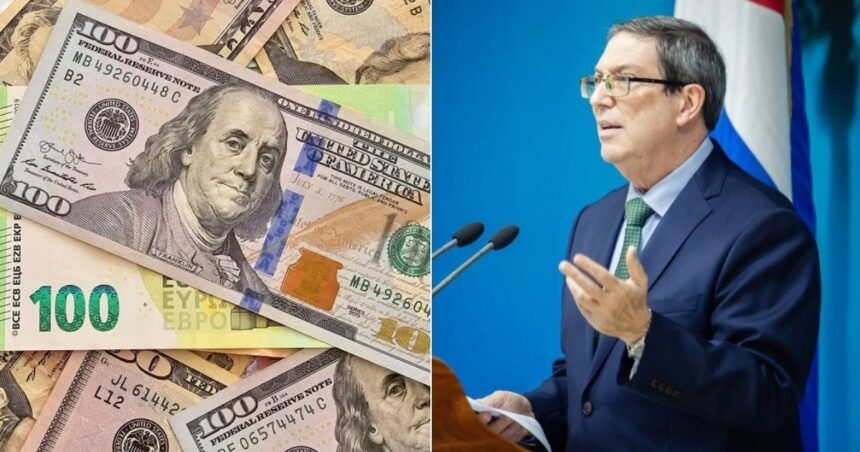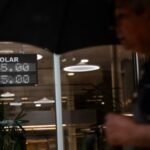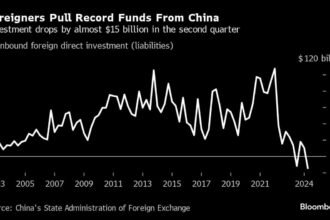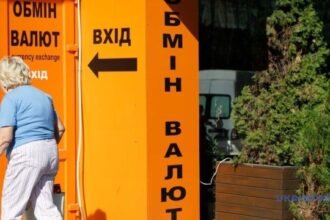Bruno Rodríguez Parrilla, Cuba’s Foreign Minister, has launched a scathing critique against the informal currency market, accusing it of being part of an orchestrated campaign from the United States aimed at triggering an economic crisis in Cuba.
Rodríguez claims this is a deliberate strategy of “destabilization,” involving currency speculation, psychological manipulation, and illicit financing through U.S. federal resources.
The accusation, shared on his official account on the social media platform X this past Saturday, has sparked a wave of reactions, reviving debates over the causes of inflation and the depreciation of the Cuban peso.
“The U.S. government is directly organizing, funding, and executing a comprehensive destabilization program as part of its economic war against Cuba,” Rodríguez stated with a serious tone.
According to him, the operation involves “Cuban-origin operators located in the U.S. and other countries,” suggesting an international network with a clear aim: to hit the wallets of Cuban citizens directly.
A Direct Assault on Currency and Social Stability
The Cuban Foreign Minister emphasized the sensitivity of one of the tools allegedly used in this offensive: the exchange rate.
He asserts, “Their mission is to depress the population’s income level through speculative manipulation of the currency exchange rate.”
This manipulation, he argues, directly leads to “rising prices, the spread of intimidating and alarmist messages on social media, and thus altering the natural behavior of the market.”
Rodríguez suggests that behind the inflation, the uncontrolled rise of the dollar, and the loss of purchasing power of the Cuban peso, there are not only internal structural causes but also a coordinated action to amplify economic chaos.
“The effect is severe damage to the income of every Cuban and additional obstacles to macroeconomic stabilization programs,” he warned, implying that this type of currency sabotage is directly interfering with official plans for economic recovery.
US Congressional Funds, Money Laundering, and Social Media
One of the most sensitive points of his statement involves directly linking U.S. government institutions to financing this alleged operation.
Rodríguez alleged that there is “money laundering of U.S. federal budget, using funds allocated by the United States Congress,” with these resources being channeled through the State Department, contractors, and NGOs.
This financial component, according to the foreign minister, is intended to fund digital platforms, psychological manipulation campaigns, and structures that affect the informal economy, particularly in the alternative currency market.
While the Cuban Minister did not name specific entities, it’s clear that the discourse again targets independent digital media like elTOQUE, which has been accused by the government of actively engaging in speculative exchange rate setting in Cuba.
The public’s reaction to the minister’s allegations was swift. Many users on X responded with criticisms of the Cuban government, questioning the real causes of inflation, the deterioration of the Cuban peso, and the growth of the informal market.
“The dollar has no ceiling because the peso has no value; inflation is a monetary phenomenon. Stop printing pesos,” one commentator asserted.
“When a government opens dollar stores but pays in pesos, without real production to back the currency, the result is inevitable: inflation, devaluation, and inequality. No destabilization plan is needed for that to happen. There’s a lack of good management and internal responsibility,” another pointed out.
“Those who sell in dollars and pay in pesos are you…,” a third Cuban reminded.
Between Denial and Mockery: A Polarized Reaction
Alongside economic critiques, sarcastic remarks and mockery of the official discourse proliferated.
“Another day of badmouthing the United States”; “You guys are smoking the good stuff”; “Now even the exchange rate is someone else’s fault, never because of your poor economic management. It’s disgusting.”
Some questioned the logic of the official statement with international comparisons: “And why isn’t Taiwan like Cuba? Since China has an even stronger economic blockade.”
Amid the flood of criticism, several accounts defended the official stance, using hashtags like #TumbaElBloqueo and attacking elTOQUE.
Resistance Narrative or Distraction?
For many Cubans, the official narrative about alleged external manipulation of the exchange rate is seen as a smokescreen to divert attention from the internal economic collapse.
“So much talk to say: we’re incompetent and as corrupt as Gil, but the inflation blame is on elTOQUE”; “Invest in agriculture, don’t divert so much money into your pockets, listen to the people… you don’t even know the price of a banana in the market,” other commentators concluded.
The message from Foreign Minister Bruno Rodríguez not only ignited debate but also starkly reflected the growing gap between official discourse and the public’s perception.
While the government insists that the country’s problems are caused externally, a significant portion of the population points to internal policies, lack of structural reforms, unresolved monetary duality, and the loss of purchasing power as the deep causes of the crisis.
In this context, blaming the informal currency market—without acknowledging economic design errors, productive disincentives, and systemic inequality—seems, to many, an attempt to shirk responsibilities rather than facing them with real solutions.
Key Questions About Cuba’s Economic Situation
What did Bruno Rodríguez accuse the U.S. government of?
Bruno Rodríguez accused the U.S. government of organizing and financing a comprehensive destabilization program aimed at causing economic chaos in Cuba.
How does Rodríguez claim the informal currency market affects Cuban citizens?
Rodríguez claims that the informal currency market manipulates exchange rates to depress income levels, leading to price hikes and widespread economic instability.
What are some of the public’s reactions to Rodríguez’s accusations?
Many members of the public criticized the Cuban government, attributing the economic issues to internal mismanagement rather than external interference.
What solutions are suggested by critics of the Cuban government?
Critics suggest investing in agriculture, improving internal management, and addressing structural issues like monetary duality to combat inflation and economic decline.





















